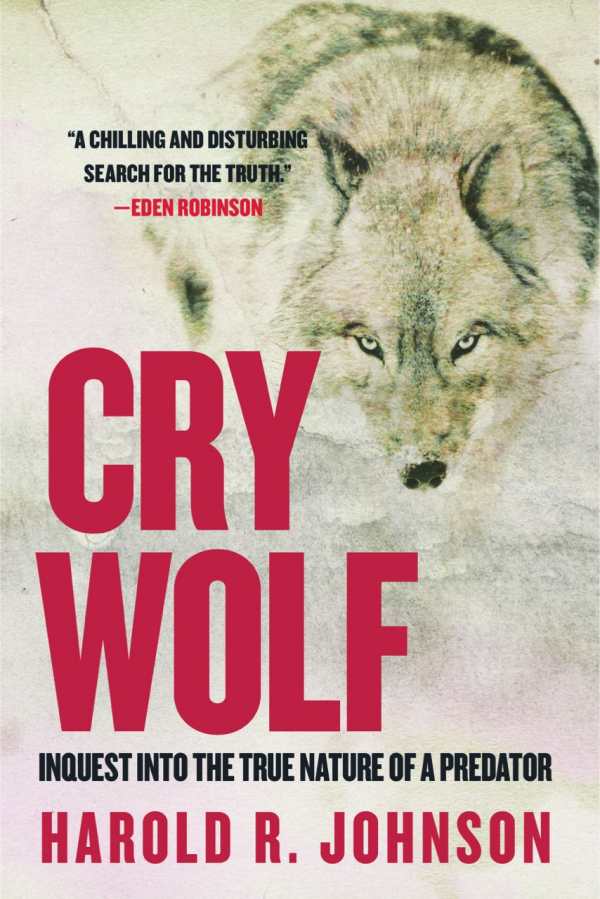Cry Wolf
Inquest into the True Nature of a Predator
In 2005, twenty-year-old engineering student Kenton Carnegie took a walk near his work site in a remote part of Saskatchewan, but never returned. Colleagues who found his body saw that it had been dragged and had wolf tracks nearby. Carnegie’s death was a big news story in Canada, as he was the first confirmed case of wolves killing a human in North America. Harold R. Johnson explains the evidence for wolves being behind the attack in Cry Wolf.
Johnson represented the victim’s family at the inquest into his death, and much of this slim volume focuses on the evidence presented at that inquest. The autopsy confirmed that the death was not a homicide, but the inquest featured significant debate about whether wolves or bears were the cause of Carnegie’s death. Most of Cry Wolf focuses on that debate. Though the import of the outcome is never fully clear (with homicide ruled out, it often feels like an academic exercise), the book is an interesting window into how this debate was argued.
As he did in that earlier capacity, Johnson presents arguments that wolves are the most likely culprit. He recounts his own (and others’) earlier experience of being attacked by a wolf, demonstrating that the lack of a human death to that point had an element of chance. He critiques the specifics of the bear argument and some sloppiness in that side’s argument, such as citing an expert who had died before he could have possibly weighed in.
What emerges is a case that wolves killed Carnegie, and a reminder of the danger they can pose. Johnson makes clear that this death should not be used as ammunition by those who want to kill wolves or overreact to their presence, but that sites like those where Carnegie worked need to be take precautions. Cry Wolf makes a case for such care.
Reviewed by
Jeff Fleischer
Disclosure: This article is not an endorsement, but a review. The publisher of this book provided free copies of the book to have their book reviewed by a professional reviewer. No fee was paid by the publisher for this review. Foreword Reviews only recommends books that we love. Foreword Magazine, Inc. is disclosing this in accordance with the Federal Trade Commission’s 16 CFR, Part 255.

